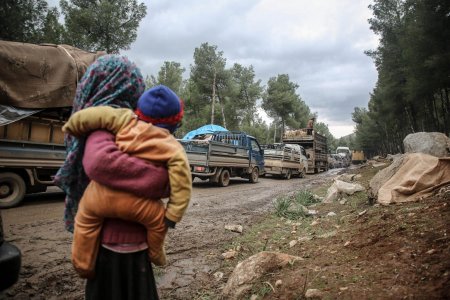
Girls in the Middle East and North Africa are in greater danger of being forced or sold into ‘tourist’ or ‘pleasure’ marriages due to the surge in poverty, displacement, and the COVID-19 pandemic, Save the Children warned ahead of a global meeting next week on gender equality.
Ahead of the Generation Equality Forum in Paris, Save the Children said the compounded crises meant some parents felt they had no option but to accept marriage proposals for their daughters, including temporary unions between young girls and older men, some of which last just a few weeks and are arranged in exchange for money.
Loopholes in laws against child marriages in countries including Lebanon, Egypt, Turkey and Iraq are exposing children to a broad range of protection risks. In some contexts, this is enabling exploitation of girls through temporary marriages, the aid agency said. Time-bound ‘summer’, ‘tourist’, or ‘pleasure’ marriages are a form of violence and a breach of girls’ rights with lifelong consequences for their safety and education.
The exploitative practices are exposed in Save the Children’s new report, ‘Married by Exception: Child marriage policies in MENA’ released today. Seventy-five girls interviewed for the report said COVID-19, poverty and displacement were the main factors contributing to a worsening of the situation.
In Iraq, so-called religious-based ‘pleasure’ marriages condemn girls to marriage, often to older men, for short periods of time. Similarly, in Egypt, ‘summer’ or ‘tourist’ marriages see girls forced to marry foreign men who travel into the country for this purpose[ii]. In spite of different laws limiting the practice, exceptions and loopholes allow temporary child marriage to take place. For example, marriages based on religion are prohibited without referring to court in Iraq but still happen if a small fine is paid. In Turkish law, the minimum age for marriage is 18, but children can marry aged 16 with court authorisation in “exceptional circumstances”.
Najwa*, a teenage Syrian refugee in Egypt said: “I had the experience [of being asked to marry] when I was 14 years old. Someone came to my family asking for marriage but my family did not accept his proposal. But I was thinking they might accept it. And this thought affected me, my education and plans. It also affected my relationship with my family and even with my friends, I became depressed because I did not want to marry this man.” Exploitative marriages have also taken place within Syrian refugee communities in the region where desperate parents said they were left with little choice but to ‘sell’ their daughters into marriages or agree to short-term marriages in return for money.
In Lebanon, Syrian refugees reported that child marriages were happening more quickly out of financial urgency or because girls were out of school, and were often arranged by unregistered Sheikhs and clergymen amid an absence of a civil law banning child marriage.
Girls who spoke to Save the Children said child marriage laws, if they exist at all, were unlikely to protect them because they are rarely enforced[iv]. They said stronger enforcement, through imposing fines and jail terms on those found to play a role was needed.
Source: Save The Children







